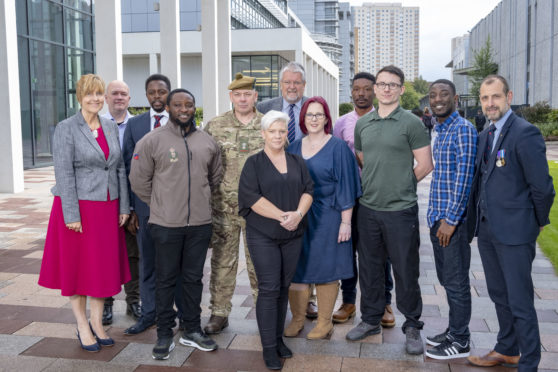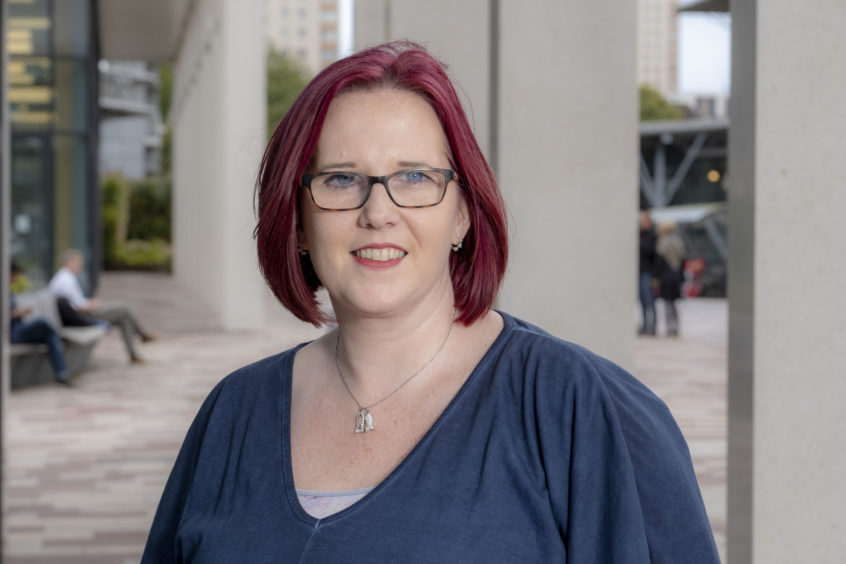
A Scottish university will help military veterans’ families by playing a key role in a new UK-wide study focused on psychological health.
Glasgow Caledonian University (GCU) psychologists are part of a team of researchers who will look at the challenges that come with having a member of the family in the Armed Forces.
The project, commissioned by the Forces in Mind Trust, coincides with the 75th anniversary of VE Day – a tribute to those who served in the Second World War.
Challenges faced by the families of military personnel include the need to move to different bases, upset and worry during times of deployment and potential economic, social, and psychological issues when transitioning from military to civilian life.
The new study will look at how best to support ex-Armed Forces families and will identify their likely future needs.
The Forces in Mind Trust (FiMT) has awarded a £306,956 grant to an academic at Queen’s University Belfast (QUB) to lead the two-year study in partnership with GCU, King’s College London, Anglia Ruskin University and Cardiff University.
Scottish lead and co-investigator in the study, Dr Kareena McAloney-Kocaman, a senior lecturer in applied health psychology at GCU, said the project will “play a pivotal role in building our knowledge of the challenges faced by these families, and of how best to support them”.
She added: “We are delighted to contribute to this important research that seeks to better understand the experience of the families of military veterans.
“The family members of military veterans experience unique challenges due to the nature of a military career including not only the challenges of that career, but the transition from a military to civilian life.
“GCU has a strong commitment to support the health and well-being of our military veteran community, within GCU and more broadly within Scotland.”
The study is due to begin in September 2020 and the charity sector partner is Combat Stress, the UK’s leading veterans’ mental health charity supporting veterans affected by anxiety, depression and post-traumatic stress disorder (PTSD).
Project lead Professor Chérie Armour, Director of the Stress, Trauma and Related Conditions (STARC) research lab at QUB, explained: “Families may have experienced a number of geographical re-locations during a military career, have had worry and upset during times of the service person’s deployment, and may have experienced some economic, social, and psychological challenges because of transition from military to civilian life; the family transitions with the service person.
“What we need is a robust and detailed understanding of what that means for the family and their own personal health and wellbeing. This award allows us to investigate exactly that and to provide a solid evidence base upon which family support providers can call upon when designing support services.”
FiMT Chief Executive Ray Lock added: “While most service leavers and their families make a successful transition to civilian life, there is a minority who struggle, and the impact of service on the psychological health and wellbeing of families is an under-researched area.
“This study will provide us with an important evidence base on the needs of ex-service families and will offer much-needed recommendations on how best to support them.”
Last November, GCU was awarded the Employer Recognition Scheme Silver Award by the Ministry of Defence for its outstanding support of Armed Forces veterans and their families.
GCU’s Veterans and Armed Forces Champion, Jim Castle, also launched Scotland’s first Veterans and Armed Forces Friends and Family (VAFFF) society for staff and students at the University.

Enjoy the convenience of having The Sunday Post delivered as a digital ePaper straight to your smartphone, tablet or computer.
Subscribe for only £5.49 a month and enjoy all the benefits of the printed paper as a digital replica.
Subscribe © Peter Devlin
© Peter Devlin